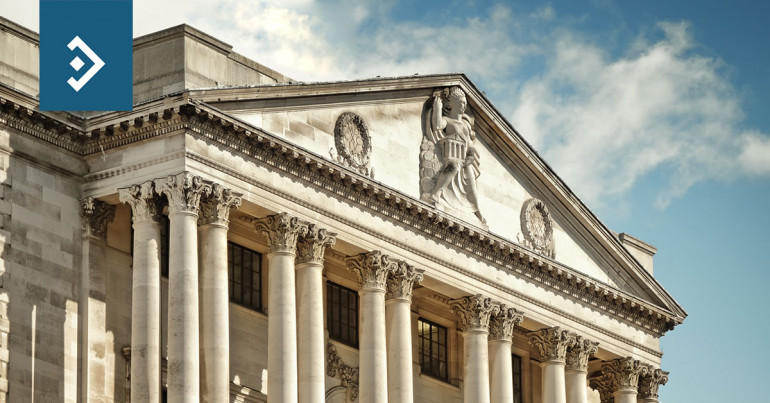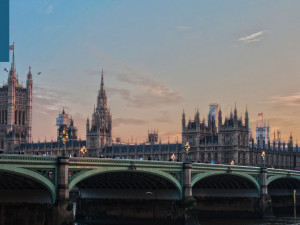
Bank of England to walk the line
Morning mid-market rates – The majors
28th April: Highlights
- Higher mortgage rates hitting house prices
- Streaming Fatigue about to become significant factor
- Euro collapses to lowest level in five years
Can the Bank of England remain independent?
Accused of being too sanguine about rising inflation last summer when it was still working to protect the economy from the effect of the pandemic on monetary policy, the Central Bank is now stuck between a rock and a hard place.
Its current rate hike cycle, which is expected to see interest rates rise to 1% for the first time since February 2009 while not considered to be wrong given rising inflation, which could reach 10%, but may not be fit for purpose.
The Chancellor of the Exchequer, Rishi Sunak, is sure to be in contact with the Bank’s Governor Andrew Bailey, which may lead to questions about the Bank’s independence.
In Parliament, where there is a culture of blame, there has been very little discussion of the role of the Central Bank in the current issues the economy faces. The evidence still points to inflation continuing to rise, whale talk of a recession is still a little anecdotal.
The issue facing the MPC is that if it does continue to hike rates and the economy continues to falter, even if inflation is brought back under control, it will not have done its job.
However, if it halts its plans to continue to hike at least three more times, inflation is certain to continue rising and there may be no discernible improvement in the state of the economy.
The balance of risks is therefore still skewed towards higher inflation and that, in the eyes of the market, is enough to see at least a twenty-five-basis point hike next Thursday.
The MPC is made up of six Bank of England employees and three independent external members. The external members are there to ensure that the committee benefits from expertise drawn from outside the Bank.
Currently those three are Michael Saunders, Silvana Tenreyro and Catherine Mann. Critics of the way the committee is set up say that the independent members have set ideas on the economy and are unable to react to the current situation.
Michael Saunders, for example, is seen as being an inflation hawk, always seeing the answer as hiking rates, no matter the question.
While traders, investors and analysts pronounce their view on next week’s meeting, the pound is still suffering from the perception that the economy will continue to falter. With little new data to back up opinions due for release this week, last week’s data which showed confidence falling is still having an effect.
Yesterday, it fell to a low of 1.2502 and closed at 1.2545.
Considering your next transfer? Log in to compare live quotes today.
Hawks and doves fighting to be heard
This all may be about to change as Democrat members of the Administration look at this year’s midterm elections and look for a scapegoat in advance of what is already being feared as the loss of control of the House.
Jerome Powell, a Trump appointee, faced a significant struggle to be re-elected despite the support of the President and Secretary of the Treasury.
Several jobs are vacant in and around the FOMC. Three slots on the board of the Federal Reserve are up for grabs this year and the President is under pressure to make what would be considered political appointees even if they are not the best men for the job.
That would be a significant departure, considering how jealously Fed Chairman Jerome Powell protects the Central bank’s independence from the legislature.
While other areas, for example the Supreme Court, are riddled with politically expedient nominees, the Fed has to all intents and purposes been left to its own devices.
Powell’s appointment was something of an anomaly since he has a legal background, and this made him the first Fed Chair not to have an economics degree.
This was held against Powell following his insistence that rising inflation last summer was transitory and entirely due to the logistical issues created by the lockdowns.
Two FOMC members reach mandatory retirement age this year, and there is already a vacancy at another. The makeup of the rate setting committee is about to have a 25% facelift, but the jury is still out whether that will have any material effect on voting intentions.
For now, the balance of risks in the U.S. economy remains heavily skewed towards rising inflation, more so than in either the UK or Eurozone.
That will lead the FOMC to stamp down hard on the brakes, possibly too hard, and this is expected to keep the dollar well-supported over the rest of this quarter and well into the next.
Yesterday, the dollar index rose to a high of 103.28, closing at 102.98. This is a five-year-high, and with the dollar well into overbought territory technically, it may be that a sell the fact attitude could be seen following the FOMC meeting.
Euro dragged lower, as economic recovery a mirage
The rather glib expression that one size doesn’t fit all has been bandied around to explain almost every problem that has arisen.
Of course, this is true to a certain extent, but it stems from the fact that several Eurozone members have been unable to embrace the changes in monetary policy that have often been alien to their economic culture.
Even Italian Prime Minister, Mario Draghi, who served as ECB President, hankers for the level of public spending that got his predecessors in hot water with Brussels. Germany cannot accept any form of inflation and isn’t prepared to meet its neighbours halfway.
Now, the Pandemic followed by the conflict in Ukraine has had the effect of sweeping away the foundations of the monetary union and a new breed of politicians is arising, but being led by Ursula von der Leyen and Emmanuel Macron may not be the most sold foundations on which to build a Brave New World.
Germany is no doubt weaker, in the short term at least, following the departure of Angela Merkel and its perceived leadership is being usurped and Russia appears to be taking full advantage.
So far this week, there have been several expansionist comments from Russian Foreign Minister Sergei Lavrov, some of which have been inflammatory. Comments about his belief that Russia is fighting a proxy war with NATO given the latter’s supply of arms to Kyiv has been followed by the turning off of gas supplies from Russia to two of its former satellites and now NATO members, Bulgaria and Poland.
Both nations are forged in hardship and have made huge strides since the collapse of the Soviet Union.
NATO and the European Union are both expected to come to their aid, but yesterday’s news saw the wholesale price of gas skyrocket again.
The ECB has committed itself to the return of inflation to its 2% target and this will mean that monetary policy will need to be tightened just as the conflict bites into GDP more savagely.
ECB President Christine Lagarde appears to accept that interest rates will need to rise in the third quarter.
Yesterday, the euro fell to 1.0514 and closed at 1.0556 as the market reacted to the significant issues facing the region.

About Alan Hill
Alan has been involved in the FX market for more than 25 years and brings a wealth of experience to his content. His knowledge has been gained while trading through some of the most volatile periods of recent history. His commentary relies on an understanding of past events and how they will affect future market performance.”



